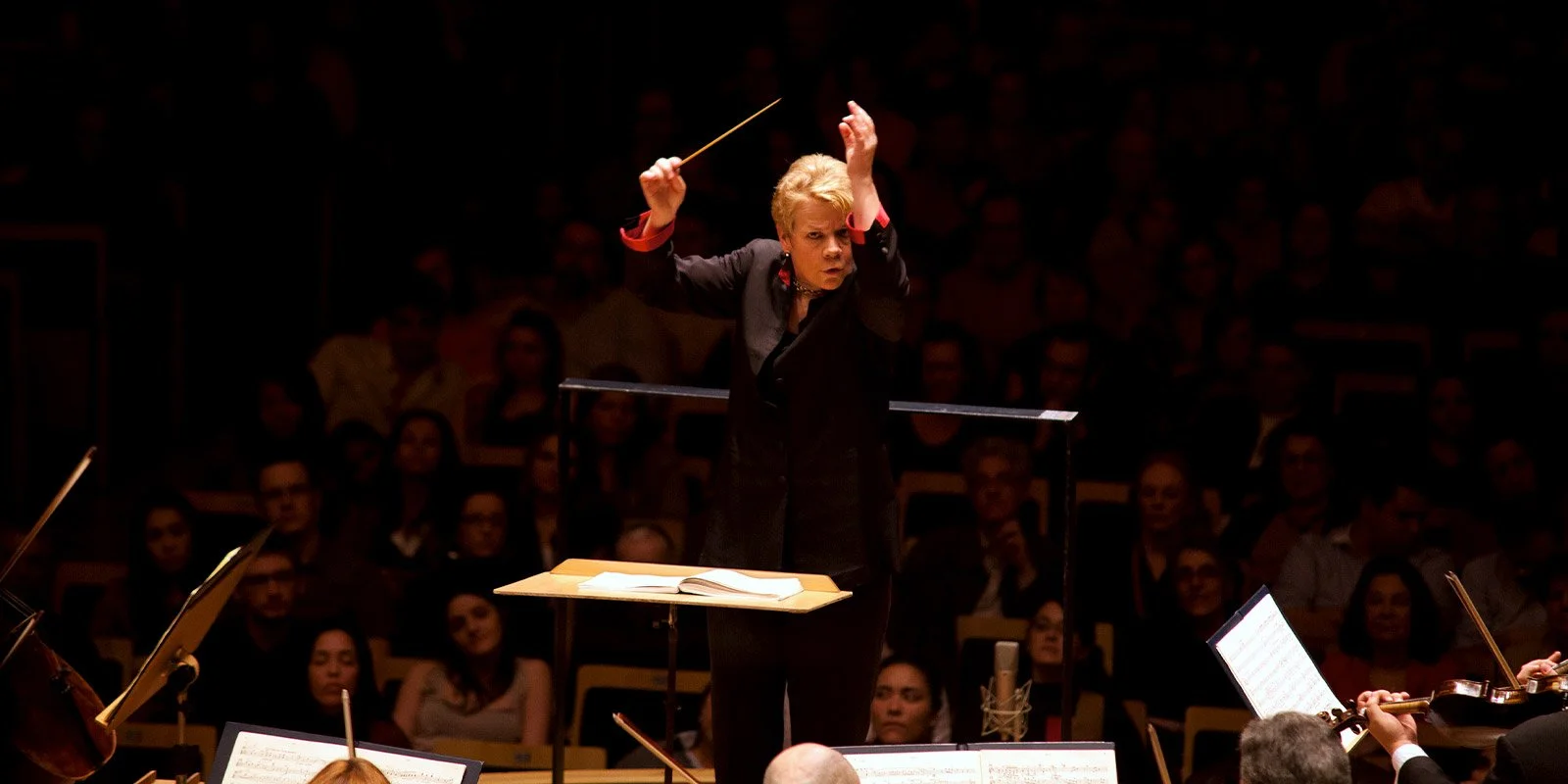Film review: The Conductor follows maestro Marin Alsop's rise in the face of shocking rejection
Documentary reveals that for decades, the trailblazer was told it was impossible for a woman to lead an orchestra
Marin Alsop was driven to conduct an orchestra from the time she was nine years old.
The Vancouver International Film Festival presents The Conductor at the VIFF Centre from January 28 to February 8
IT TOOK UNTIL 2007 for a woman to lead one of America’s 25 major orchestras. That person was maestro Marin Alsop, who took the podium at the Baltimore Symphony Orchestra—and at the time, as one person puts it in the compelling new documentary about her life, the odds made her “more likely to be the leader of a G7 nation or a four-star officer in the United States military”. Sadly, the musicians themselves rebelled at the time, leading to a confrontation that Alsop, in true high-road style, managed to quell with calm and open communication.
The film traces all the obstacles Alsop faced trying to reach the dream she’d had of becoming a conductor since nine years of age. It’s frankly shocking to see the sexism she confronts in the final decades of the 20th century—and depressing to think that the classical-music world was a last bastion of the old boys’ club. Career roadblocks include several applications for the conducting course at Juilliard being rejected overtly due to her gender, and even her hero-mentor Leonard Bernstein giving her the backhanded compliment that her artistry is so amazing that if he closed his eyes, he’d swear she was a male.
Those attitudes have changed considerably today, of course. At the Vancouver Symphony Orchestra, we’ve seen a wave of celebrated female guest conductors take the podium over recent years, from Xian Zhang to Tania Miller (music director emerita at the Victoria Symphony). (Alsop, it should be noted, stepped down from the Baltimore orchestra in June 2021; with James Conlon named as her replacement, all the major orchestras in the United States were led by men until October 2021, when the Atlanta Symphony Orchestra announced it would install conductor Nathalie Stutzmann as its next music director.)
But most female conductors today owe their careers at least in part to this trailblazer, whose honest and down-to-earth reflections on her own hard childhood, her struggle to conduct, and her longterm marriage to another woman are frankly refreshing and engrossing in The Conductor.
Filmmaker Bernadette Wegenstein traces her life back to a basement apartment in New York City (“I was frightened by the roaches”), where her two demanding musician parents were never home; her warmest memories are the cocoas she received from a loving babysitter up the street. Her mother and father forced her into piano studies, but she found her true voice, later on, through the violin. But her real passion was conducting—a goal set in motion seeing the charismatic Bernstein lead an orchestra when she was nine years old. It would set her on a path that met extreme resistance.
Ever intrepid and driven, Alsop formed her own orchestra and sought out her own instruction, eventually working her way to the top echelon of maestros in the world.
Wegenstein captures her profound understanding and love of music, catching the quiet moments at home before performances, where she reads the scores, gently undulating her hands, hearing entire brass sections, strings, and percussion in her head. One of Alsop’s great loves is Gustav Mahler, and on a boat ride in Switzerland, she likens the gentle mist to one of his great symphony’s openings.
Amid her achievements, Alsop put the São Paulo Symphony Orchestra on the map. Elsewhere, Wegenstein also shows the way she’s devoted herself to correcting a system that tried to quash her dreams, running vast children’s music programs in Baltimore and mentoring a new generation of female conductors around the globe.
At the same time, the film reveals the magic that made Alsop want to conduct, and the beauty and complexity of having 75 musicians hanging on your fingertips. Alsop doesn't get off on the power of this hierarchy though; rather, she seems to have a unique ability to channel her own emotion and send it emanating out through the instruments in front of her. One young conducting student says Alsop's key to leading an orchestra is her authenticity—and that same trait is what makes the documentary so compelling, too.













